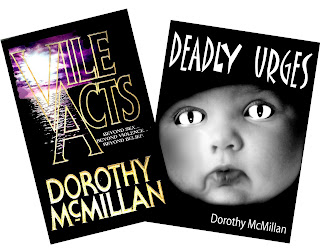My friend Libby Grandy interviewed me about my new book for this interview series on my blog. I hope you find it interesting!
cheers,
Laura
Interview with Laura Hoopes by Libby (Elizabeth) Grandy:
Your memoir, Breaking Through the Spiral Ceiling has received excellent reviews. How did you become interested in writing after a successful career as a biology professor?
Laura, I'm sure you are an avid reader. What kind of books do you like to read?My first year students in Biographies of Biologists seminar were frustrated because there were no biographies of women who had relationships, who married and had children. They asked me to write it, half kidding, but I decided someone had to do it. I wanted to show that it is possible to have a career in science and a family life, and that it can be worthwhile and enjoyable. I think my life has had its share of setbacks and problems, but I also think the reader can see how much I’ve valued my family life and also my ability to make new discoveries with my students. I had to struggle to learn how to write something besides scientific papers so it took me six years of writing courses and workshops.
You're right, Libby! I
like novels like White Tiger and the Brief Wondrous Life of Oscar Wao and The
History of Love. I also like
memoirs and biographies. I just
read Harper Lee, a YA biography of the author of To Kill a Mockingbird by my
friend Kerry Madden. What a job
she had getting material about this very private but interesting woman.
What is your writing process like?
Do you write literature other than memoir?
If I am working on something specific, I can’t work in tiny pieces of time. I need to sit down with a couple of hours before me so I can reflect on what’s gone before and get into the writing state that works best for me. I do lose touch with reality while I’m writing. I like quiet over music and bustle, so I write at home rather than in Starbucks as many of my friends do.
Yes,
I am in an MFA program in creative writing, fiction at San Diego State
University and I write short stories and work on novels in that program. I’ve had a long short story published
in The Chaffin Journal and a
couple of short short stories online at Rose City Sisters.
Have you had any inspiring writing teachers?
Have you encountered any surprises in becoming a memoir author?Most of my teachers have been inspiring in one way or another, including you when I was in your critique group. I had several encouraging classes with Mike Foley of UCR Extension early on. Then I took Writing the World with Verlyn Klinkenborg at Pomona College where I am a professor. He really focused us on sentences, and I’m grateful, but it was highly intimidating. Then, I had courses at UCLA Extension leading to a Certificate. Linda Raymond was an inspiring novel teacher, and Barbara Abercrombie and Gordon Grice inspired me to write nonfiction/memoir in more depth. Now I have three great writing teachers at SDSU, Stephen-Paul Martin, Hal Jaffe, and David Matlin. Although they have different styles, they have all had good effects on my writing.
Do you have an agent? What are your thoughts on agents today?One surprise is that once I had published a book, I was suddenly an expert according to those who invite you to speak. I’ve had no trouble doing a book tour in 2011 talking with undergraduate researchers, young undergraduates, postdocs, community members, and writers.Another surprise is that Pomona College has been so encouraging to me even as I remake myself as a creative writer and become less and less engaged in biology research.
I
do not have an agent, and I would like to have one someday. It’s my understanding that agents are
very helpful in writing ideas in the way editors used to be. Without one, it’s not possible to
market books to the big companies like Random House and Basic Books.
I
first submitted it to university presses, and Yale University Press was quite encouraging. They sent it out for review and got
back suggestions for me, which I used for revisions. The reviewers all thought it should be published. Yale didn’t give me a contract, but
they told me, for three years, that I was “in the queue.” During that time, I submitted to a new
series of publishers and SUNY wanted to see it on an exclusive basis, but when
I called Yale they wanted me to stick with them. I did, and a year later they emailed to say they were no
longer interested in publishing my book.
That was that. So I
considered options and decided to use a print on demand site, Lulu. The Female Science Professor who writes
a blog I enjoy had used that for her book, Academeology, and one of my friends
from SDSU had published a novel there and liked it.
Do you have any other thoughts you would like to share?
Going
into writing has been a pleasurable journey for me. I’ve met many interesting people, and I feel glad to give a
message to young women considering science careers that family is possible for
them. You can see more about my women-in-science concerns by going to my website, http://www.lauralmayshoopes.com.







